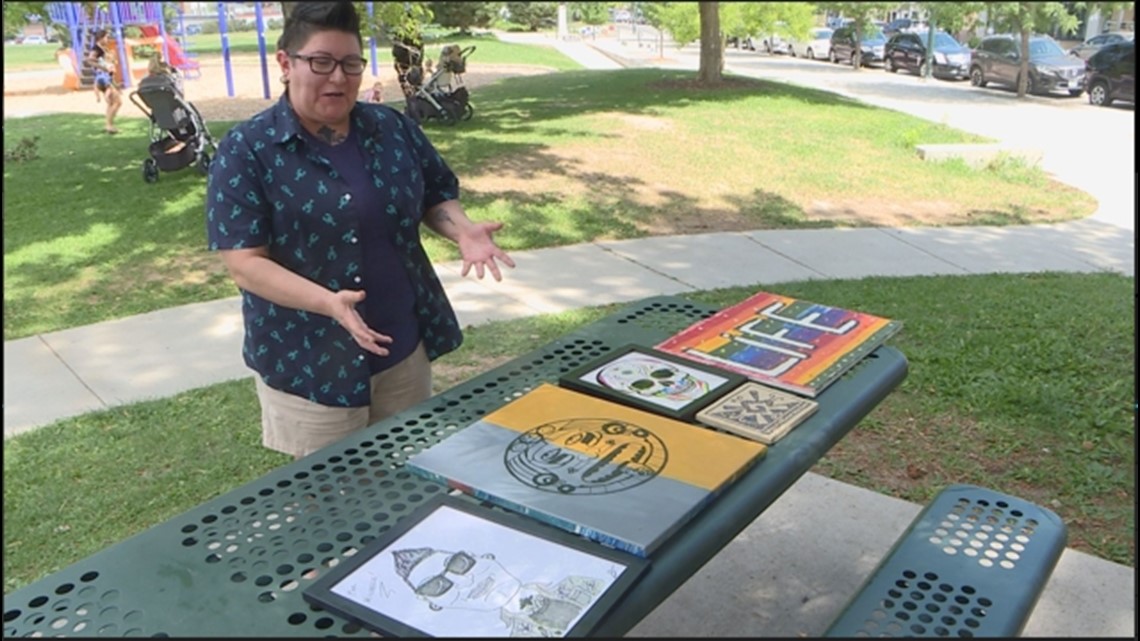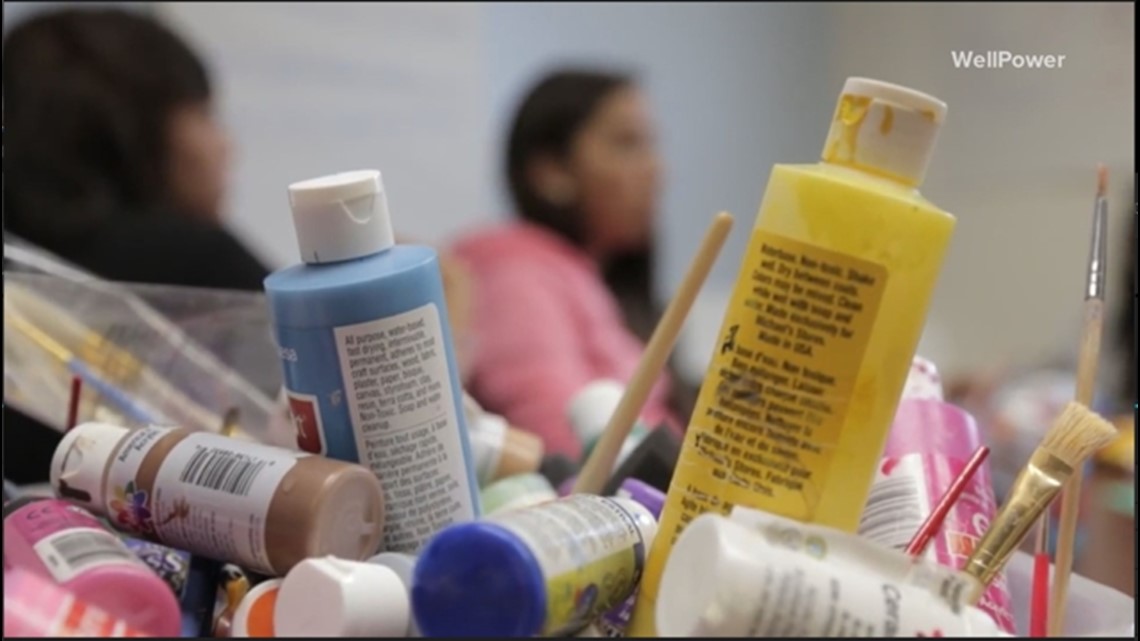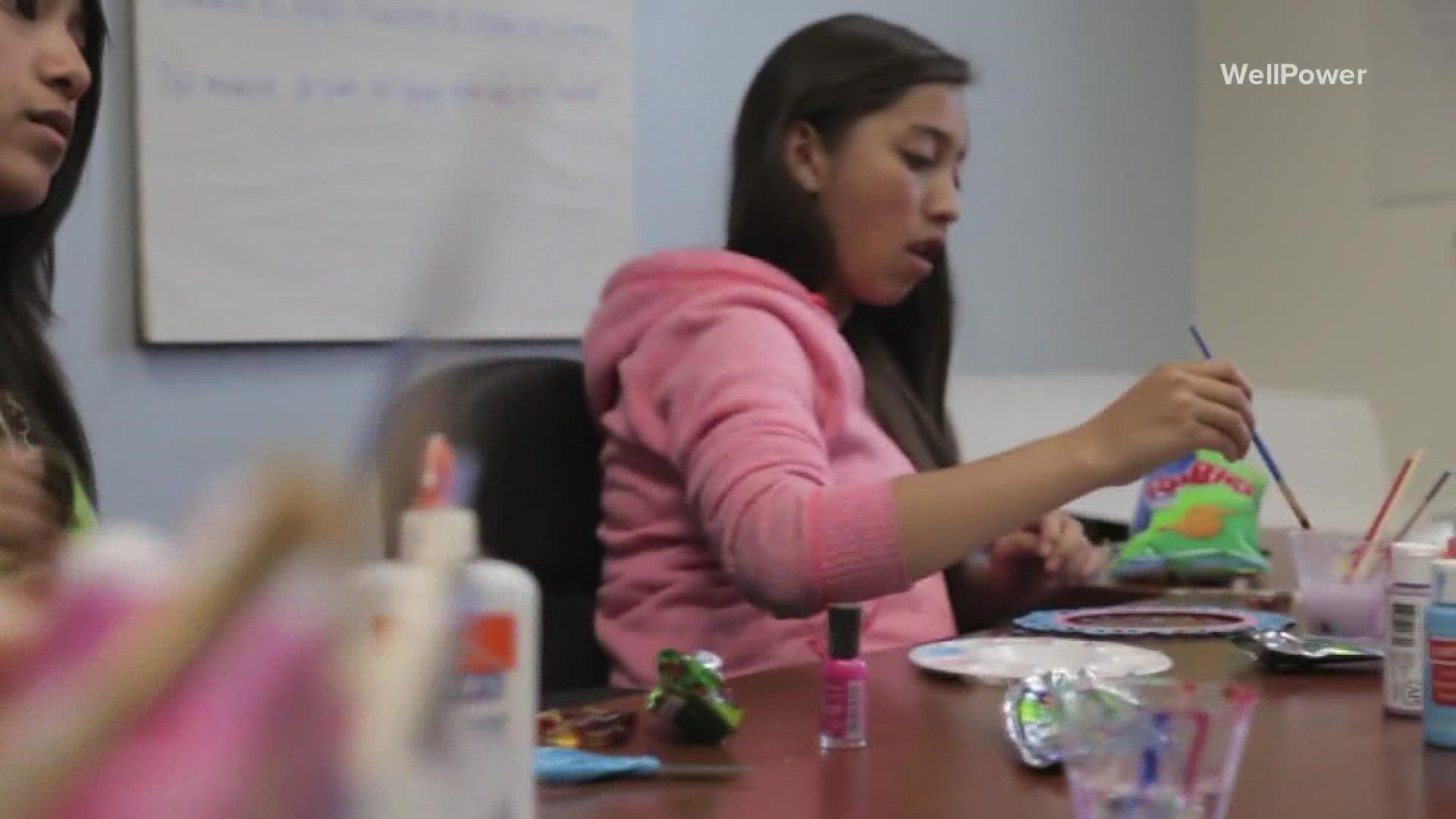DENVER — In 2008, July was formally recognized as National Minority Mental Health Awareness Month, which is now more commonly known as BIPOC Mental Health Month.
Standing in front of a collection of artwork, Michelle Tijerina reflects on the spotlight that the month puts on the need for culturally responsive mental health services.
"There needs to be a level of trust so that people can become vulnerable," she said. "And that is really difficult to do if you're talking to someone who doesn't understand your culture, doesn't understand your language."
Tijerina is the Community Coordinator for Voz y Corazón, a free support group for youth in the Denver metro. It's under a branch of WellPower, a community mental health center in Denver.
Among other things, the program specializes in teaching youth how to intervene with friends and family when there's a concern about possible suicide.
"Everything else could be falling apart in their lives, but they know that Voz y Corazón is still going to be there," she said.


While they serve mainly the Hispanic and Latino community, they're open to people of all backgrounds, and it shows in their growth.
"Voz y Corazón served 323 young people in this past fiscal year. That's 100 more than we served last year," she said, adding they've grown to 15 separate groups of people that they serve.
They typically separate the support groups by age, serving people age 10 to 24.
The growth, she said, is a sign of the demand.
"So when we think about why has it grown, there is a need for it. There aren't enough therapists who are bicultural, bilingual, culturally responsive to Latino families. There are waitlists everywhere you go for mental health services," she said.
According to a survey of 1,000 Colorado Latino adults in November, 65% strongly supported increased access to mental health services.
The importance of culturally responsive mental health services is vital, Tijerina said.
"There needs to be a level of trust so that people can become vulnerable. And that is really difficult to do if you're talking to someone who doesn't understand your culture, doesn't understand your language, what some of the barriers are within systems that people of Latino backgrounds have to deal with," she said.
However, she believes there need to be more bicultural and bilingual therapists providing mental health services.
"And I think therapy for BIPOC people has always been limited up until recently, with more bicultural responsibility and with more bilingual people," she said.
According to the American Psychological Association, 6.18% of psychologists are Hispanic, 4,24% are Black or African American and 3.22% are Asian, as of 2020.
According to the association, 84.47% of psychologists are white.
"There has been an increase in wanting well-being in your life, and that's especially important for BIPOC people because of the stresses that people have to endure around systemic racism, around accessibility," she said.


Over at the Asian Pacific Development Center (APDC), an array of mental health services are offered for immigrant and refugee communities in Colorado. They serve people of all backgrounds.
They also provide services to victims of crimes to help them address their trauma.
"It is extremely important to provide culturally responsive mental health services, because people like to be seen by therapists that understand their culture and background," APDC Executive Director Harry Budisidharta said.
Over the past few years, they have seen an increased demand for their services due to the stress caused by COVID-19, the wave of hate crimes against the Asian community, and gun violence affecting their community, Budisidharta said.
"Many of our community members are nervous about going outside of their house because they have been victimized by hate crimes or because they know somebody that has been victimized by hate crimes," he said.
APDC serves young children, adults and seniors. If you need their services, you can call 303-923-2920 or email info@apdc.org.
SUGGESTED VIDEOS: Mental Health & Wellness

